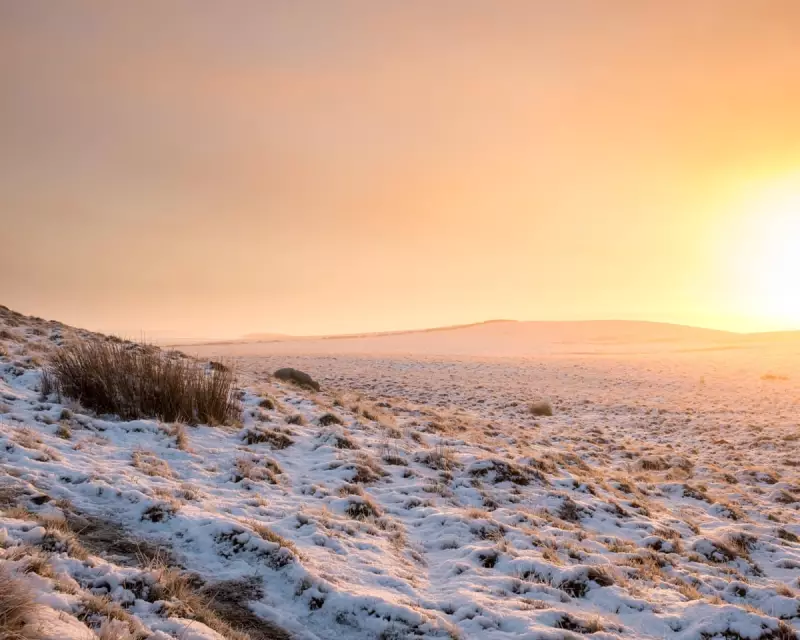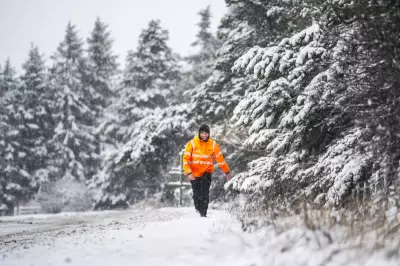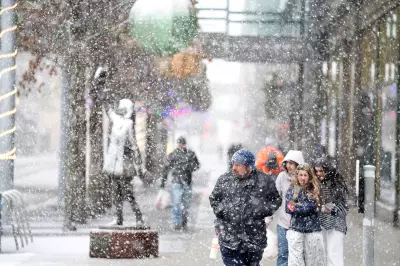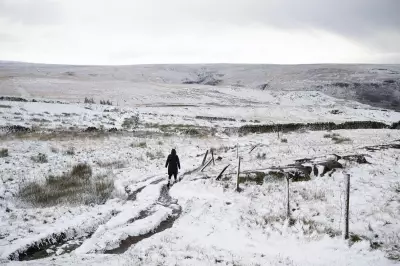
The UK Health Security Agency (UKHSA) has escalated its warnings, issuing an amber cold health alert for northern England as a prolonged period of severe cold weather grips the nation. The alert, indicating a significant risk to public health, is active from noon on Monday until 8am on Saturday.
Widespread Weather Warnings for Snow and Ice
Simultaneously, the Met Office has activated multiple yellow weather warnings for snow and ice affecting swathes of Scotland and northern England from Monday through to Thursday. Forecasters predict that overnight temperatures could plunge to a biting -10°C in some areas, creating hazardous conditions and widespread disruption.
Paul Gundersen, the Met Office's Chief Forecaster, detailed the incoming threats. "Scattered showers fed into the north-east and far north of Scotland could create a risk of icy conditions on roads and pavements," he stated. He also warned that an area of rain arriving in western Scotland early on Tuesday morning carries a risk of turning to snow as it moves inland.
Significant Disruption and Health Risks Forecast
This wintry blast is expected to cause considerable travel disruption. Gundersen added that the period of snow could "bring some disruption to travel and infrastructure across higher parts of Scotland." By Wednesday, a "strong and very cold northerly flow" will make the already low temperatures feel even more severe.
Deputy Chief Forecaster Tom Crabtree provided specific snow accumulation predictions. He forecast 2-5cm of snow in low-lying areas, with 5-10cm likely in higher areas. In the most exposed parts of north-east England and Scotland, accumulations of a substantial 15-20cm are possible.
Protecting Vulnerable People During the Cold Snap
The amber health alert specifically highlights an increase in risk to health for individuals aged over 65 and those with pre-existing health conditions, such as respiratory and cardiovascular diseases. Ruth Goss, a senior cardiac nurse at the British Heart Foundation (BHF), emphasised the seriousness of the situation.
"It is especially important that those with heart conditions are well prepared this winter by wrapping up warm and having their free flu jab," she advised. The BHF recommends several precautions for those at risk:
- Keep indoor temperatures to at least 18°C.
- Wear warm clothing to trap in body heat.
- Stay active indoors.
- Wrap a scarf loosely around the mouth and nose to breathe in warmer air, which is particularly helpful for those with angina.
- Eat warm meals and drink healthy hot drinks.
With the cold spell set to last for most of the week, authorities are urging the public to stay informed about the latest forecasts and to check on elderly or vulnerable neighbours.





